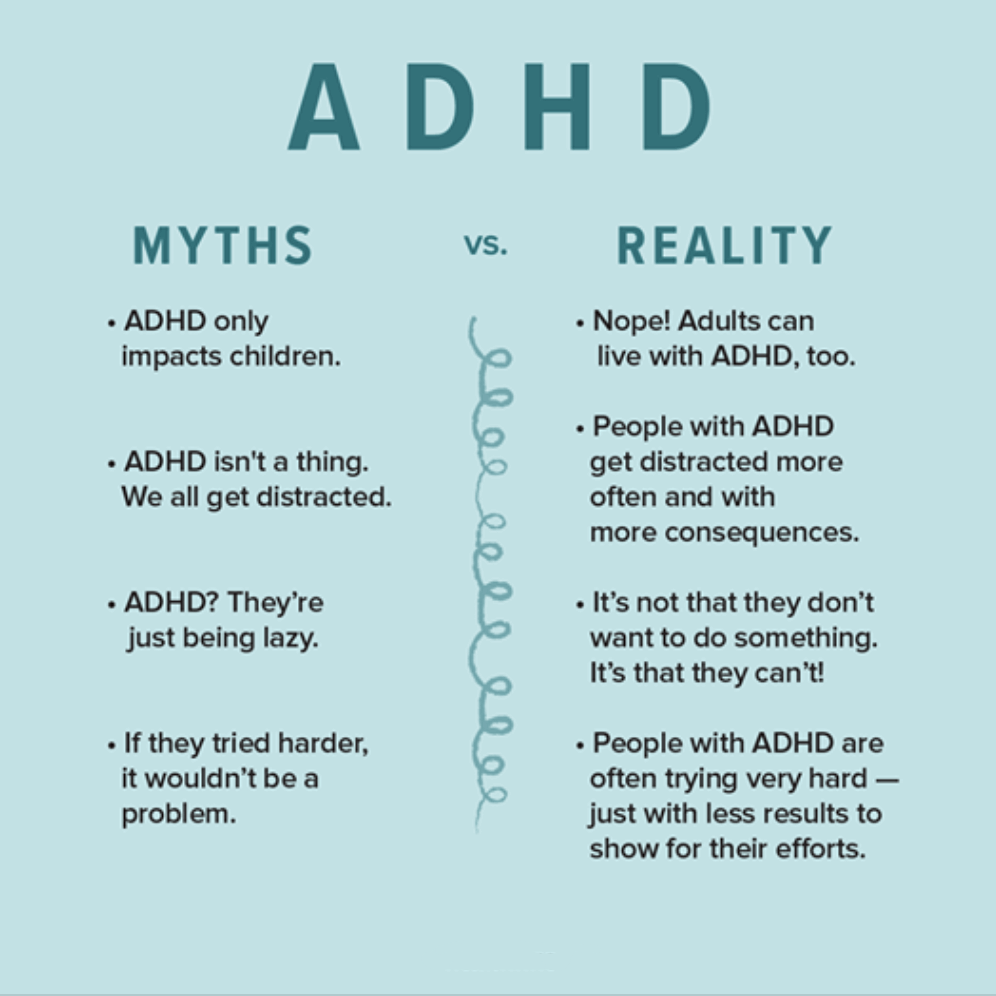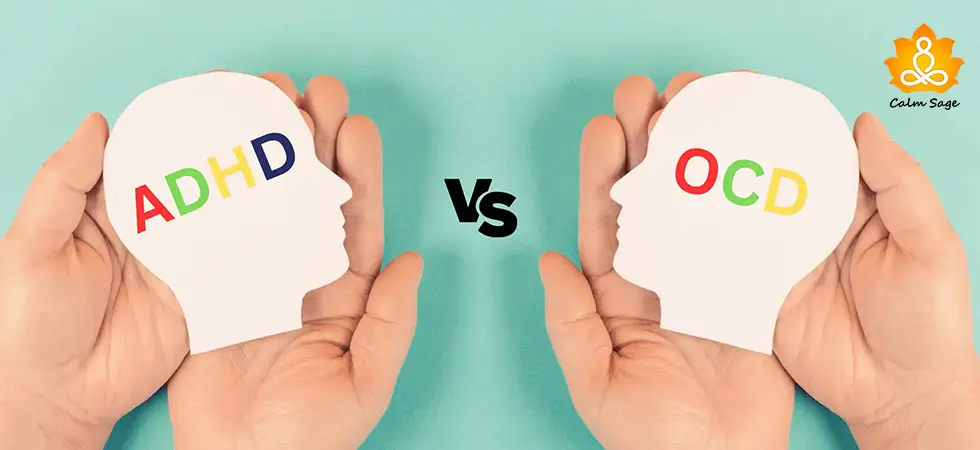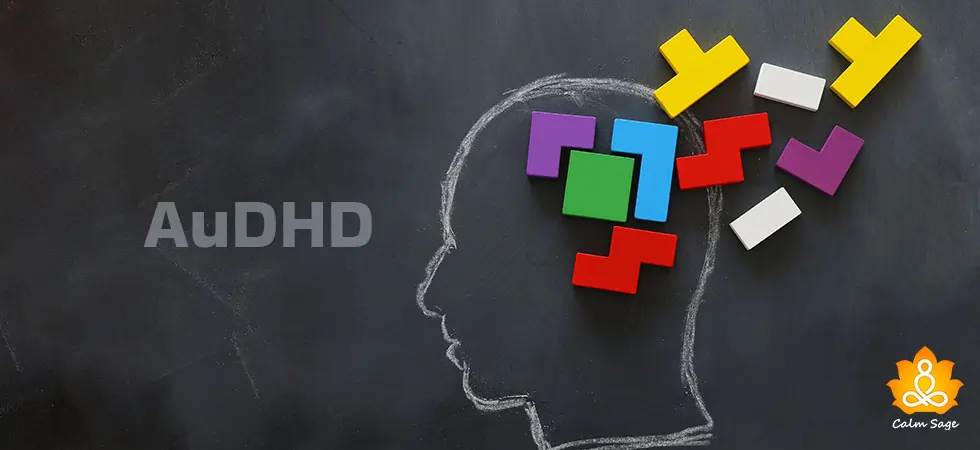Debunking These Common Myths About ADHD Is An Absolute Urgency!

As per the National Alliance Of Mental Illness (NAMI), more than 9 percent of children and 4 percent of adults are diagnosed with Attention Deficiency Hyperactivity Disorder or ADHD in the U.S.A. alone. However, the severity, symptoms, and combination of inattention vary amongst the patients and even change during their lifespan.
Symptoms of ADHD make it hard for a person to focus on one activity, stay organized or complete the assigned tasks. Constant anxiety, inability to retain information and emotional instability are some other common symptoms that a person with ADHD goes through. Many of us believe that ADHD is limited to childhood but the fact that an adult faces the same is generally misunderstood. This is why we need to bring out some other ADHD myths and facts while thrashing off the ADHD stereotypes.
We hope to shed some more light on the reality of the condition so that each of us understands that it is not a shame to accept the condition rather challenge the common myths to get over it.
7 ADHD Myths & Misconceptions
Let’s explore and debunk the myths altogether. Once we figure it out, it gets easy to look for a treatment and resolve the condition.

Image Source: Healthline.com
Myth 1: ADHD Is Not A Real Medical Condition
Fact: Although there are no specific tests that identify the disorder like other physical conditions, it is often misunderstood that ADHD is not a real disorder. However, mental health professionals use specific criteria to find whether a person is facing ADHD or not.
Moreover, the majority of medical professionals, psychologists and organizations like National Institute of Health, American Psychiatric Association and U.S. Department of Education have recognized ADHD as a real medical condition. Even the research has proved that ADHD is hereditary and there is a considerable difference in brain development between those who have ADHD and those who don’t.
Myth 2: ADHD Is The Result Of Poor Parenting
Fact: Parents often blame themselves for their poor parenting when the child is facing ADHD. It needs to be understood that ADHD is not a root cause of poor parenting but the child having this disorder may act differently when the home environment is not habitable or conflict within family members are very common.
Sometimes parents feel that their child is not disciplined enough and compares their fidgeting and impulsive behavior with others, they rather need to pay attention to the signs of a medical condition. An interesting fact about ADHD backed by research, states that kids with predictable routines and clear goals for everyday benefit more than haphazard parenting style.
Myth 3: Only Boys Get ADHD
Fact: Amongst the common myths about ADHD, this misconception increases issues like mood swings, anxiety, comorbid disorders and personality changes in women at later stages of adulthood. Hence, it should be debunked immediately.
It is true that boys show hyperactivity and impulsivity that gets them on the radar of diagnosis easily but girls are often overlooked. It is really necessary to keep an eye on girls with other symptoms like day dreaming, fidgeting and inability to focus and provide them the essential support needed.
Myth 4: People With ADHD Can Never Focus
Fact: The person may find difficulties in focusing on work but it is also a fact about ADHD that if they are very much interested in any activity, they would easily focus on the same. For example, kids having ADHD may not be much interested in lessons being taught in the classroom but they might engross in their favorite game for hours without any distraction. Sometimes, the lack of motivation for an activity may be mistaken as laziness or unfocused behavior.
However, the situation may need to be controlled if any kid or an adult is hyper-focusing on an activity and not able to keep a track of time.
Myth 5: Medications Alone Can Cure ADHD
Fact: It is recommended to consume the medications prescribed by a professional but it doesn’t alone cure the symptoms of ADHD. With the help of a psychological expert and the coping strategies prescribed by them, these symptoms lessen with time. These strategies coupled with prescribed medications are helpful in expanding the vision of correcting ADHD soon. The doses change as soon as the changes become visible.
Myth 6: Kids With ADHD Will Outgrow It
Fact: It can be said that the symptoms of ADHD slowdown in adulthood or even the kids begin to manage these symptoms with their understanding. But the myth of its automatic outgrowth needs to be discarded as most of the people continue to experience ADHD in their adulthood as well.
As we have mentioned before, the signs may vary with the passage of time, adults are generally forgetful, interrupt the conversations, have trouble sitting in one place for hours or struggle to finish the assigned task in the workplace.
Myth 7: ADHD Is ‘Not Serious’
Fact: This is the most common myth about ADHD but one needs to know that ADHD could be life-threatening or even proved to have serious implications on the life of a human being, especially on adults. For example, if a person is not able to concentrate on his tasks in the workplace, he is in constant fear of becoming jobless and the idea alone is enough to risk the imbalance of professional and personal life.
The brain chemicals like dopamine, norepinephrine, and glutamate work differently for various functions in the patients. Its identification and medical assistance is the right way to treat ADHD rather than avoiding it with a tag of ‘not serious’ issue.
Don’t Hesitate To Ask For Help
After breaking all the ADHD stereotypes and learning about the common myths and facts, you must be wondering about various if’s and but’s. Well, we recommend you to ask for professional help for anyone who is going through the disorder. If you know someone with a similar condition, make sure to educate them and motivate them to ask for help.
You May like these Also:
How To Tell If Someone Is Faking Depression?




















